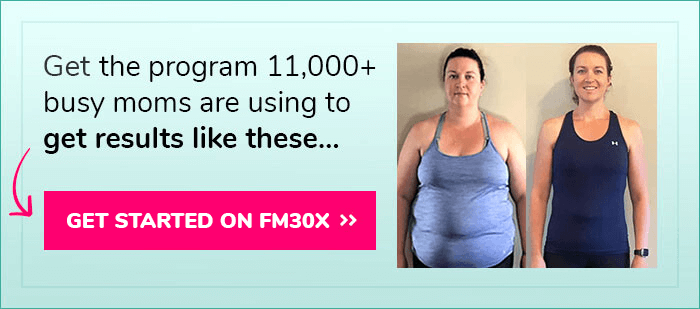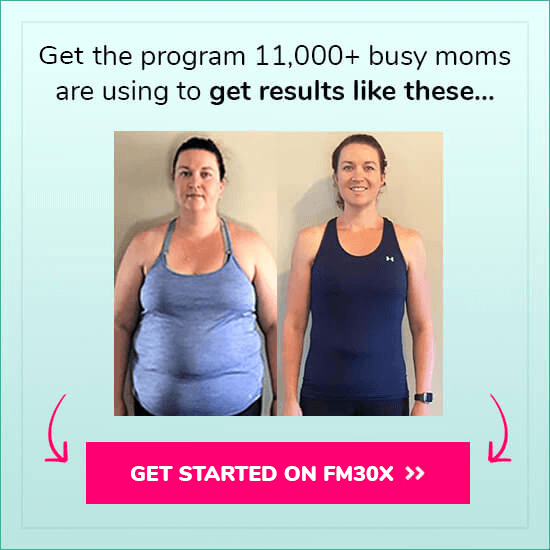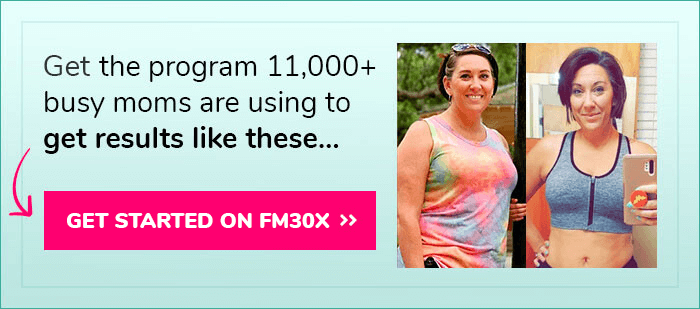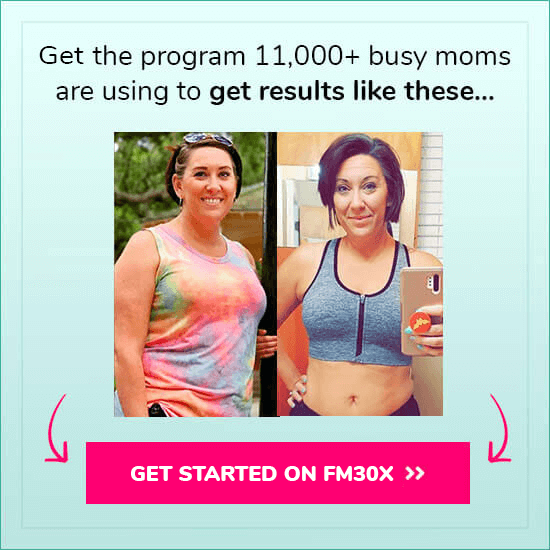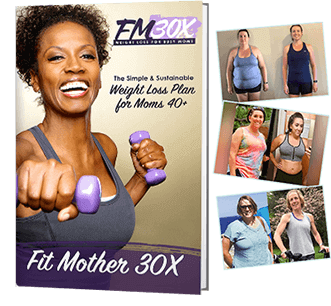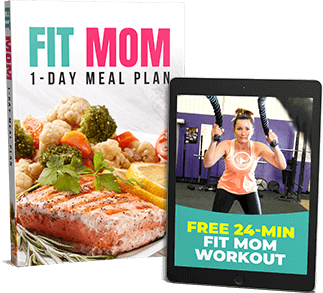Healthy aging for women isn't automatic, as many things (including a busy lifestyle) can get in the way of aging in an ideal way.
Knowing which chronic diseases to watch for, as well as ways to enhance your health over 40, is a must! With increasing age comes a higher risk of developing chronic diseases, though healthy habits can dramatically reduce your risk.
Examples of chronic diseases (and their risk factors) to watch out for in women over 40 include:
- Obesity
- High blood pressure
- High cholesterol
- Diabetes
- Heart disease
- Arthritis
- Osteoporosis
- Anxiety
- Depression
- Heavy menstrual bleeding
- Other gynecological conditions
- Breast, ovarian, and cervical cancers
- Skin cancer
- Hormone imbalance
- Menopause symptoms
- Thyroid problems
- Nutritional deficiencies
See your doctor regularly and attend routine health screenings for women to detect these or other health problems before they become serious.
Here's what else you need to know about healthy aging for women!
Learn the research-proven secrets to reverse aging and keep your body young!
Symptoms of Possible Health Problems
You may or may not experience symptoms of common health concerns in women. Sometimes you don't know you have a problem until complications develop – such as nerve damage, organ damage, fatigue, or a heart attack.
High blood pressure and high cholesterol often have no symptoms. Symptoms of diabetes, thyroid problems, or other chronic conditions that could be concerning include:
- Pelvic pain
- Extreme fatigue
- Unplanned weight loss or weight gain
- Hair loss
- Skin changes
- Increased urination
- Increased thirst or hunger
- Appetite changes
- Temperature sensitivity
- Sore, achy joints
- Stiffness
- Mood changes
- Low libido
- Dizziness
- Heart palpitations
- Memory or other cognitive problems
- Changes in menstrual periods
- Lumps in breast tissue
- Changing moles
At the first sign of new or unusual symptoms, see your doctor for an evaluation.
Early detection and treatment is the best way to properly manage or recover from an illness or disease.
Important Health Screenings for Women
Health screenings over 40 are important for healthy aging in women, and can even save your life in some cases. Your doctor gives you a better idea about which health screenings are most appropriate based on your age, gender, and lifestyle habits. They may recommend you undergo the following:
Breast Cancer Screening
There are several types of breast cancer screenings your doctor may recommend for women over 40. You can complete breast exams yourself at home by feeling breast tissue to detect possible lumps. Your doctor might complete a manual breast exam during annual wellness checkups.
Depending on your age and breast cancer risk factors, your provider may recommend you undergo a mammogram, which is an imaging procedure that detects lumps in breast tissue using low-energy X-rays.
Cervical Cancer Screening
Cervical cancer screening is important for healthy aging for women, as early detection and treatment are the best chances you have of beating the disease.
Follow your doctor's instructions regarding how often to get screened for cervical cancer. It may be once every three years or more often if you've had an abnormal Pap test result.
During a Pap test, your doctor takes a sample of cells from your cervix using a tissue swab and submits the sample to a lab for analysis.
Skin Cancer Screening
Skin cancer screening is important at every age, especially over 40 in men and women.
Your doctor may complete skin checks during wellness visits, but you can also keep track of skin changes yourself. If you notice unusual moles or other skin lesions, crusting, bleeding, or moles that change in appearance, have your doctor evaluate them.
Dermatologists offer cosmetic treatments, such as mole removal, laser treatments, microneedling, Botox, fillers, or other aesthetic procedures that reduce signs of aging and help you look younger. Mole removal helps prevent skin cancer from spreading.
Blood Pressure Screening
Because high blood pressure boosts your risk of heart attack, stroke, and heart disease, if you're over 40 it's important to have your blood pressure checked every year — or more often if your doctor recommends it.
Blood pressure screening uses a blood pressure cuff and a stethoscope or blood pressure machine. It's a painless procedure. If you have high blood pressure, make healthy lifestyle changes or take medications as directed by your doctor to reduce your levels.
Cholesterol Screening
Your provider lets you know how often to undergo cholesterol screenings based on your age, medical history, and risk factors. They could suggest you get screened every five years, two years, annually, or more often in some cases.
Cholesterol screening involves a simple blood test. If you have high cholesterol, making lifestyle changes and taking dietary supplements or medications can reduce blood cholesterol and your risk of heart problems.
Triglyceride Screening
Your doctor likely will check your triglycerides during cholesterol screening, as high triglycerides also boost your risk of heart problems. Triglyceride screening involves a simple blood test.
Hormone Checks
Hormone imbalance in women is common, especially over age 40. Using a simple blood test, your doctor can measure your thyroid, estrogen, progesterone, and other hormone levels and let you know if you're a candidate for hormone therapy.
Osteoporosis Screening
If you're at risk of osteoporosis, your doctor may recommend you get screened for the disease using X-ray beams during a DEXA scan. The procedure evaluates the health of your bones. If you have osteoporosis, treatment can reduce your risk of fractures and further bone loss.
Lung Cancer Screening
If you're a smoker or have smoked in the past, you may be a candidate for lung cancer screening. Low-dose CT scans can detect cancer in your lungs.
Your doctor may recommend this type of screening if you're age 50 or older and have a history of heavy smoking, you currently smoke, or you have quit smoking within the past 15 years.
Sexually Transmitted Disease (STD) Screening
Not everyone is at risk of STDs but if you are, your provider may recommend STD testing. They could have to undergo a blood test, urine test, or tissue swab to detect or rule out STDs you may be at risk for. Not all STDs are curable, but many are treatable with medications.
Colorectal Cancer Screening
You could be a candidate for colorectal cancer screening if you're age 45 or older or you're at risk of colon cancer (family or personal history of colorectal cancer, inflammatory bowel disease, polyps, etc.).
Colorectal cancer screening may include stool tests, sigmoidoscopy, colonoscopy, or CT colonography (virtual colonoscopy). Depending on the type of test you undergo and your risk factors, a doctor could recommend colon cancer screening every 1, 2, 3, 5, or 10 years. Your provider can remove polyps if they see them during a colonoscopy or sigmoidoscopy to reduce your risk of complications.
Diabetes Screening
Your doctor may suggest diabetes screening if you're over age 44 or have diabetes risk factors (overweight, lack of exercise, poor dietary habits, family history of diabetes, high blood pressure, etc.). Diabetes screening involves a simple blood test. Treatment could include lifestyle changes, insulin, oral diabetes medicines, or combinations of these treatments.
Dental Exams
Seeing your dentist about every six months for dental cleanings and exams is the best way to keep your teeth and gums healthy.
Making time for proper dental care reduces your risk of tooth decay, gum disease, and other oral health problems.
Eye Exams
Your eye doctor lets you know how often to schedule eye exams based on your health history and age. They may recommend you complete eye health evaluations and vision screening every 1, 2, 3, or 4 years, depending on your individualized needs. If you have diabetes, get an eye exam at least every year.
Mental Health Screening
Mental health is as important as your physical health, and many women struggle with depression, anxiety, eating disorders, post-traumatic stress disorder (PTSD), attention-deficit disorder (ADD), or other mental health conditions.
Your doctor can screen you for mental health challenges by asking you a series of questions. Treatment often includes lifestyle changes, counseling, medications, or combinations of treatments that restore mental health and wellness.
Looking for signs you're a healthy woman? Try these seven health tests you can do at home!
Proper Nutrition for Women Over 40
Getting the nutrients your body needs over 40 involves properly planning meals and taking dietary supplements for women over 40 in many cases.
Important Nutrients for Women
Important nutrients for women over 40 and beyond include:
- Protein: eggs, tofu, seitan, chicken, fish, seafood, lean red meat, dairy foods, legumes, nuts, seeds, nut butter, low-sugar protein shakes, and bars, etc.
- Fiber: fruits, vegetables, whole grains, legumes, nuts, and seeds
- Heart-healthy fats: plant-based oils, nuts, seeds, nut butter, olives, avocados, and fish oil
- Omega-3 fatty acids: fish oil, fatty fish, walnuts, walnut oil, soybeans, soybean oil, pumpkin seeds, pumpkin seed oil, flax seeds, flaxseed oil, etc.
- Iron: lean red meat, chicken, fish, tofu, iron-fortified breakfast cereals, legumes, spinach, and raisins
- Calcium: dairy foods, plant milk, fortified orange juice, iron-fortified breakfast cereals, tofu, soybeans, and salmon with the bones
- Vitamin D: dairy foods, plant milk, fish, mushrooms, eggs, fortified breakfast cereals, and sunlight
- B vitamins: lean red meat, chicken, turkey, fish, seafood, eggs, leafy greens, milk, yogurt, legumes, fortified breakfast cereals, and seeds
- Iodine: iodized salt, fish, seafood, seaweed, eggs, and dairy foods
- Potassium: fruits, vegetables, dairy foods, plant milk, yogurt, nuts, legumes, chicken, and fish
- Choline: meat, fish, poultry, dairy foods, and eggs
- Probiotics: Greek yogurt, plain kefir, kimchi, kombucha, tempeh, and miso
- Vitamin E: nuts, seeds, and plant-based oils
Meal Plans for Women
Planning nutritious menus for healthy aging for women has never been easier!
Simply sign up for a free Fit Mother Project custom meal plan or use the general guidelines below:
- Fill 1/2 of each plate of food with non-starchy vegetables
- Fill 1/4 of each plate with nutritious protein foods
- Fill 1/4 of your plate with starchy vegetables (corn, peas, dried beans, lentils, other legumes, or sweet potatoes) or fiber-rich whole grains
- Eat nutritious fats with every meal
- Consume fruit 2-3 times a day
- Consume dairy foods or calcium-rich plant milk three times a day
- Take dietary supplements as directed by your doctor
Choose fresh, whole foods when possible instead of highly processed foods to maximize your health and wellness!
Learn how to portion your meals with the Perfect Plate method!
Supplements for Women Over 40
Taking dietary supplements complements nutritious meal plans for women.
Your doctor lets you know which supplements are best for you based on your health, disease risk factors, and whether or not you take medications.
Supplements to consider include:
- Protein supplements
- Meal replacements
- Fiber
- Omega-3s
- Probiotics
- Multivitamin supplements
- Extra calcium or vitamin D
- Joint support supplements
- Heart health supplements
- Immune system-boosting supplements
- Hormone health supplements
- Weight loss supplements
- Other dietary supplements for women
Follow your doctor's advice about which supplements are best for you.
Exercise Tips for Women Over 40
Exercise is extremely important when it comes to healthy aging for women over 40.
Keep your body moving as much as you can throughout the day in addition to getting at least 30 minutes of planned exercise daily.
Combine strength training with aerobic workouts and take regular 10 to 15-minute activity breaks during the day to climb stairs, walk the dog, or do house chores to maximize calorie expenditure.
Consider a sit/stand desk if you work at a computer often!
How many times a week should you work out? Watch this video to find out!
Unhealthy Habits to Avoid
In addition to adopting nutritious eating habits and getting regular exercise, it's important to avoid not-so-healthy habits as much as possible. Examples include:
- Smoking
- Opioid or other drug use
- Excessive drinking
- Excessive sitting
- Skipping workouts
- Dining out too often
- Drinking sugar-sweetened beverages
- Eating candy or other sweet treats
- Consuming white bread, white rice, baked goods, and other refined grains
- Eating fatty cuts of red meat
- Consuming regular bacon, sausage, hot dogs, ham, deli meats, or other highly processed meats
- Skipping meals
- Choosing fried foods
- Eating too few fruits and vegetables
- Not consuming enough plant foods
- Eating too little protein
- Too much screen time
- Sleeping less than 7 hours per night
Moderation is key when it comes to many of the habits listed above, though you should avoid some of them entirely.
If you drink alcohol, limit drinking occasions to once weekly and stick with just one alcoholic drink per occasion if you can!
Doing these nine bad habits in daily life can lead to weight gain, decreased energy, and more!
Erin Coleman is a registered and licensed dietitian with over 15 years of freelance writing experience. She graduated with her Bachelor of Science degree in nutritional science from the University of Wisconsin-Madison, and completed her dietetic internship at Viterbo University in La Crosse, Wisconsin. Prior to beginning her career in medical content writing, Erin worked as Health Educator for the University of Wisconsin-Madison Department of Internal Medicine. Her published work appears on hundreds of health and fitness websites, and she’s currently working on publishing her first book! Erin is a wife, and a Mom to two beautiful children.
Fit Mother Project is the answer you’ve been looking for. Inside the program, you’ll receive: Our Fit Mother 30X Program (FM30X) is the answer you’ve been looking for. Inside FM30X, you’ll receive:If you’re a busy mom who wants to finally lose weight,
get healthy, and actually keep the pounds off for good,
this is the simple program you’ll love sticking to…
GET STARTED ON FM30X TODAY
If you’re a busy mom who wants to finally lose weight,
get healthy, and actually keep the pounds off for good,
this is the simple program you’ll love sticking to…
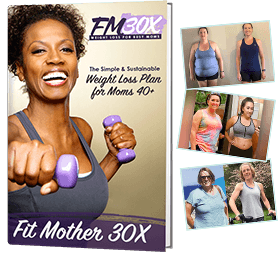
Learn More About FM30X

*Please know that weight loss results & health changes/improvements vary from individual to individual; you may not achieve similar results. Always consult with your doctor before making health decisions. This is not medical advice – simply very well-researched info on healthy aging for women.


